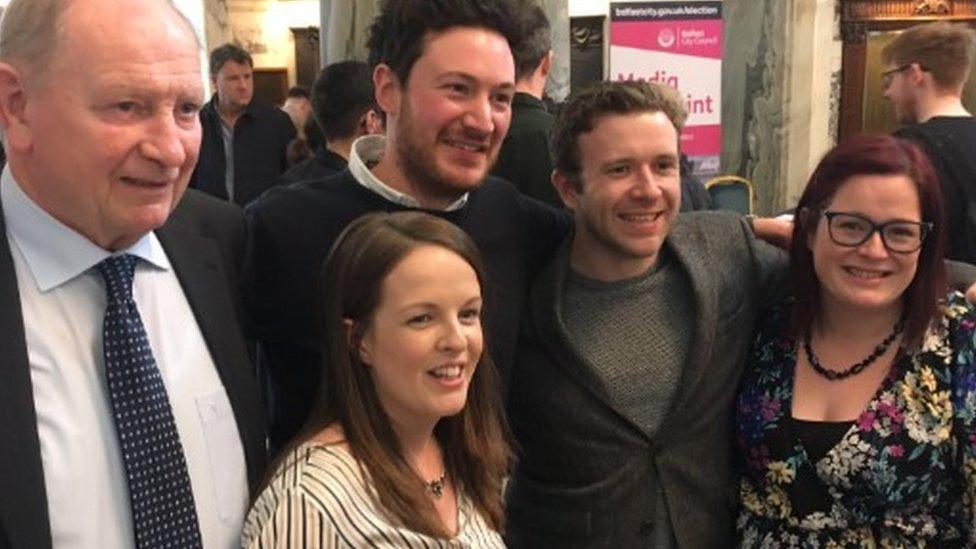Success of the 'Others' remains election talking point
- Published
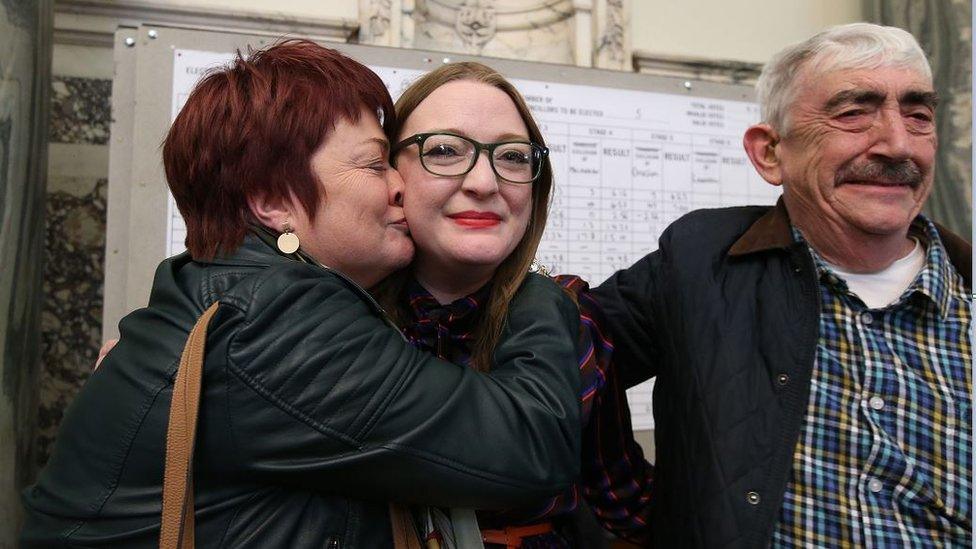
The Green Party's Aine Groogan topped the poll in Botanic DEA
With the Northern Ireland council results done and dusted, the rise of the "others" remains the big talking point.
At the Stormont Assembly, the "others" are the parties who decline to sign in as either unionists or nationalists, writing in another description of their choice.
They might have their own views on whether Northern Ireland is British, Irish or both, but they all regard the constitutional question as not their defining reason for being in politics.
If you add the shares of Alliance, the Greens and the left wing People Before Profit, who are all in this category, you get to 14% - almost double the 7.9% of the vote the same parties garnered in the council elections five years ago.
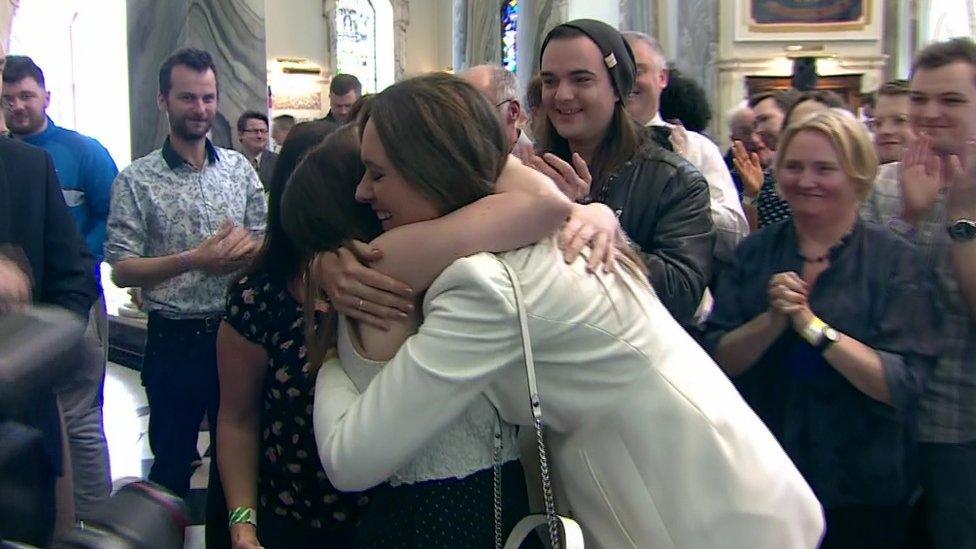
Newly elected Alliance councillors Nuala McAllister and Kate Nicholl share a hug at Belfast City Council
The unionist share, at 41.8%, is down on the approximately 48% it stood at in 2014. The nationalist share, by comparison, stands at 36.3%, compared to around 38% in 2014.
A health warning: You can cut this cake up in different ways. People Before Profit, for example, designate at Stormont as "others", but they have put on record their backing for a border poll to create a united Ireland., external
So, if you add them to the nationalist camp, it rises its percentage share by just over 1% and the "others" shrink accordingly.
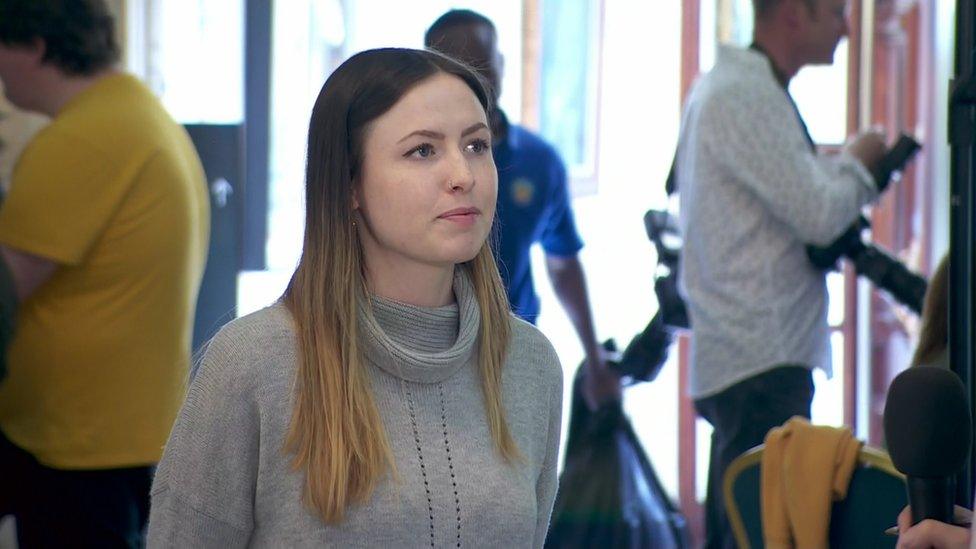
Fiona Ferguson of People Before Profit won a seat on Belfast City Council
As I noted after day one of the count, the rise of the "others" appears to reflect public frustration about the Stormont stalemate and concern regarding the prospect of Brexit.
Alliance will attend the talks due in the coming days with much more wind in its sails.
However, it remains only the fifth largest party and there are reasons for scepticism about whether the two biggest parties can resolve their differences in a negotiating process which will run in parallel with a European election and the divisive debate over Brexit.
Whether or not the European election has a negative impact on the Stormont talks, it will be fascinating to see how much influence the council results have on Northern Ireland's choice of three MEPs on 23 May.
Most commentators regard Sinn Féin and the DUP as pretty much guaranteed to take the first two seats.
But the Alliance surge will inject extra interest into the race for the third seat, which has belonged to the Ulster Unionists, but could get caught up in a Brexiteer/Remainer battle, involving four party leaders amongst the packed field of 11 candidates.
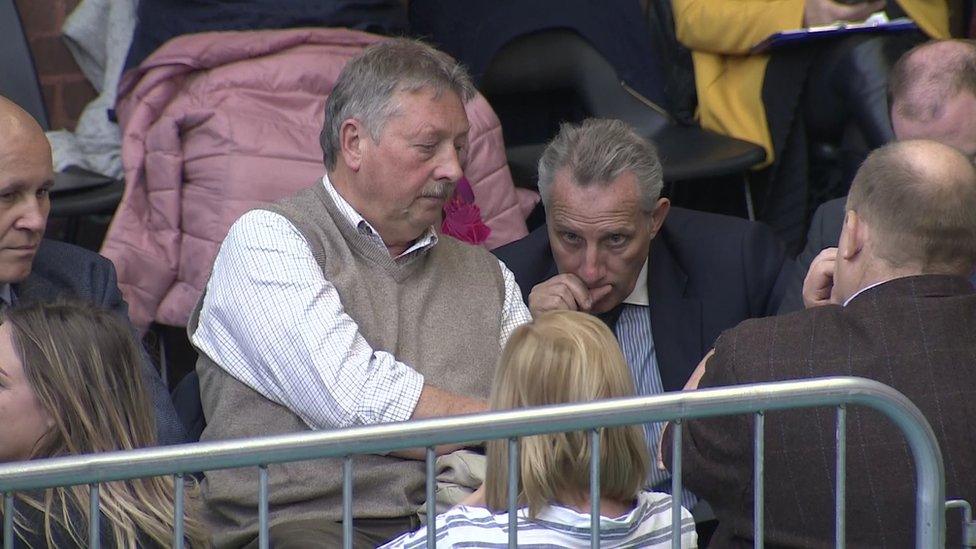
MPs Sammy Wilson and Ian Paisley of the DUP, which remains the biggest party, at the election count
Previously, I warned that single transferable voting elections are marathons, not sprints. It's not just the votes you get that count, but how you then convert your influence into the seats you need to wield power.
There's an illustration of this truth at the very top of the Northern Ireland election scoreboard, which shows the DUP slightly increased its share of the vote, but ended up with eight fewer seats than it had in 2014.
Conversely, Sinn Féin's vote share dropped slightly, but they return with exactly the same number of councillors as before - something which will have disappointed the party's strategists, who were hoping for a significant overall gain.
STV drama
As the former Alliance and UCUNF candidate Ian Parsley has pointed out, watching STV counts unfold is a bit like being an enthusiastic follower of test match cricket. The drama takes time to develop and when you try to explain the process of quotas and transfers it's a bit like the famous explanation of the "ins and outs" of cricket., external
Ian Parsley likened the Derry and Strabane Waterside count to the Headingley 1981 test match in which England's all rounder Ian Botham turned the tide against a rampant Australia., external
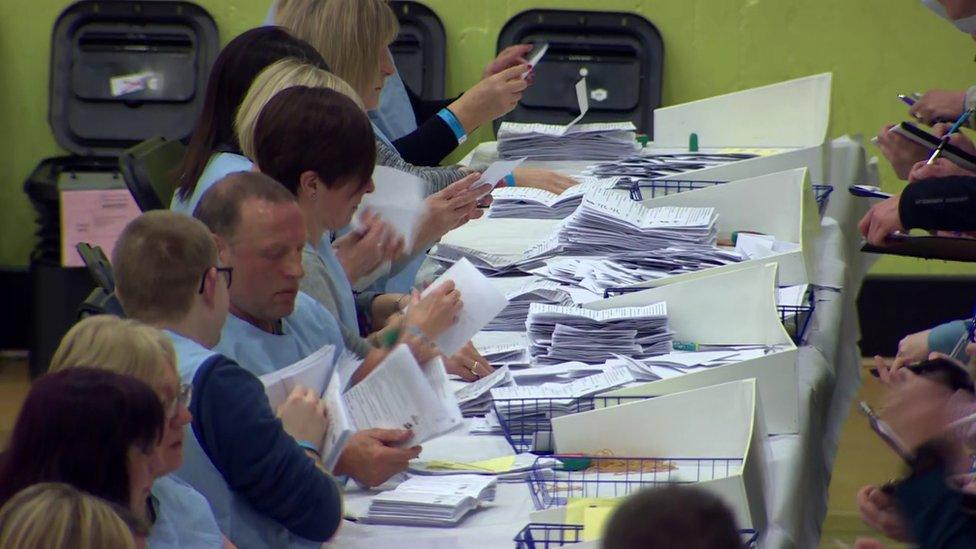
Some have suggested that if the counting process was computerised, it would be finished more quickly
Certainly Alliance's Philip McKinney, down in the last place on the first Waterside count, must have found it hard to comprehend how he slowly but surely made his way up through the field to get elected.
Early on in our election coverage, someone suggested that if the counting process was computerised, everything could be finished much more quickly.
But for we test match aficionados, this would be heresy, turning every election special into a "blink and you'll miss it".
The Irish government gave up on its e-voting project after a hugely expensive, 55m euro experiment.
The quick fire computerised elimination of Fine Gael's Norah Owen, external back in 2002 may retain a ghoulish fascination, but I continue to believe you can't beat the unfolding drama provided by the tallies and the transfers.
- Published4 May 2019
